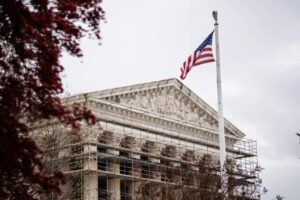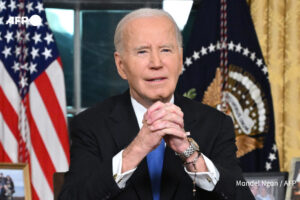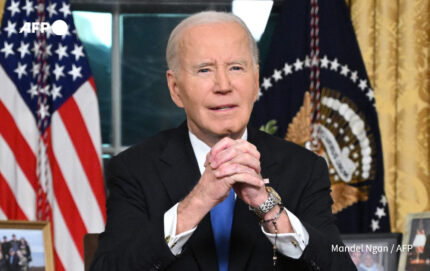On his first day in office, President Donald Trump has signed a series of executive orders that will reshape federal policies, starting with the termination of Diversity, Equity, and Inclusion (DEI) programs across the government. The move, which is expected to affect a variety of federal agencies, follows his administration’s belief that such initiatives have created a divisive environment rather than promoting unity.
An aide to the president noted the symbolic timing of the announcement on Martin Luther King Jr. Day, suggesting a return to the ideal of judging individuals by the content of their character rather than their race. This order calls on the White House Office of Management and Budget (OMB) and the Office of Personnel Management (OPM) to begin identifying and dismantling existing DEI programs.
Critics argue that the termination of these programs will reverse significant strides made in promoting workplace diversity and inclusivity within federal agencies. Supporters, however, contend that these initiatives have led to reverse discrimination and that the government should focus on treating individuals equally, without special provisions based on race or identity. The president’s decision to end DEI programs is seen as an attempt to realign federal priorities with his administration’s broader stance on merit-based decision-making and equal treatment for all, regardless of demographic factors.
Redefinition of Gender Recognition
In another bold move, President Trump is set to redefine how the U.S. federal government will recognize gender, declaring that only two sexes—male and female—will be acknowledged within federal policies. This executive order directly challenges progressive views on gender identity and will prohibit the use of federal funds to promote what the administration refers to as “gender ideology.” The controversial term often refers to non-traditional views on sex and gender, which proponents argue should be inclusive of a spectrum of identities beyond just male and female. The order also restricts federal funding for medical procedures related to gender transition, drawing a clear line on the issue of gender-based healthcare.
This policy change has drawn both support and condemnation from various corners of American society. Supporters argue that the move is a return to biological realities, claiming that the federal government should not fund or endorse practices that, in their view, undermine traditional views of sex and gender. Opponents, however, argue that such a step is discriminatory and harmful, particularly for transgender individuals who may rely on medical treatments as part of their gender transition. The redefinition of gender recognition could have far-reaching effects across federal institutions, from healthcare to military service, where transgender personnel could be disproportionately impacted.
Implications for the U.S. Military
The redefinition of gender recognition and the restriction on transition-related medical care also raises questions about the future of transgender individuals within the U.S. military. During his first term, President Trump imposed a controversial ban on transgender service members, a policy that was later overturned by President Biden in 2021. While the specifics of Trump’s new executive orders on gender recognition and military policy have yet to be fully detailed, many military experts expect a revisiting of policies regarding transgender troops under his second administration. This could include renewed restrictions on transgender individuals serving in any capacity, depending on their gender identity or transition status.
Supporters of the military ban argue that the policy is necessary for maintaining military readiness and cohesion, while opponents contend that such restrictions undermine the rights and dignity of transgender service members. The impact of these changes will be closely watched by advocacy groups, veterans’ organizations, and military personnel who fear that the rollback of transgender rights could lead to legal challenges, as well as harm to morale and the effectiveness of the armed forces. Whether or not the new administration will reinstate the ban on transgender military service remains one of the key uncertainties surrounding these executive orders.
Potential Legal Challenges
The sweeping nature of President Trump’s executive orders is likely to provoke legal challenges from civil rights organizations and advocacy groups. Legal experts predict that these groups will argue that the actions constitute a rollback of civil rights protections, particularly for marginalized communities. Historically, executive orders of this magnitude have faced scrutiny in courts, especially when they are perceived to infringe upon individuals’ rights to equal protection under the law. Civil rights groups, such as the ACLU and Lambda Legal, have already signaled their intent to fight back against these orders, citing concerns over the erosion of protections for racial minorities and the LGBTQ+ community.
If the orders are challenged in court, it could lead to a prolonged legal battle that may delay their implementation. Proponents of the president’s agenda argue that the legal challenges are expected but that the orders represent necessary corrections to federal policies that, in their view, have favored certain groups over others. The outcome of these court battles will likely shape the future direction of U.S. civil rights policies, particularly in areas relating to gender and race.
Long-Term Impact on Federal Policy
The long-term impact of these executive orders is expected to reshape the landscape of federal policy on issues related to diversity, inclusion, and gender. For many Americans, the termination of DEI programs represents a significant shift toward meritocracy, where government actions focus on equal treatment for individuals rather than targeted support for specific groups. On the other hand, critics worry that dismantling DEI initiatives could undermine the progress made in creating inclusive and representative government institutions.
The redefinition of gender recognition also signals a broader shift in cultural attitudes towards sex and gender. By officially recognizing only male and female genders, the administration is sending a clear message that it will resist expanding government support for non-binary or gender-fluid identities. While the effects of these executive orders will unfold over time, they promise to spark a national conversation on issues of civil rights, equality, and the role of government in shaping social norms. These actions will likely define President Trump’s second term and influence the direction of policy for years to come.














